|
Books Should Be Free Loyal Books Free Public Domain Audiobooks & eBook Downloads |
|
|
Books Should Be Free Loyal Books Free Public Domain Audiobooks & eBook Downloads |
|
History Books |
|---|
|
Book type:
Sort by:
View by:
|
By: Flavius Josephus (37 - c.100) | |
|---|---|
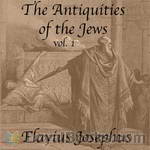 The Antiquities of the Jews
The Antiquities of the Jews
Antiquities of the Jews was a work published by the important Jewish historian Flavius Josephus about the year 93 or 94. It is a history of the Jewish people, written in Greek for Josephus' gentile patrons. Beginning with the creation of Adam and Eve, it follows the events of the historical books of the Hebrew Bible, but sometimes omits or adds information.Volume 1 contains Books 1-5 and ends with the dedication of Samuel and death of Eli the priest. | |
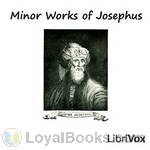 Minor Works of Josephus
Minor Works of Josephus
There are 3 parts to this collection.(1) Against Apion is a two-volume defense of Judaism as classical religion and philosophy, stressing its antiquity, as opposed to what Josephus claimed was the relatively more recent tradition of the Greeks. Some anti-Judean allegations ascribed by Josephus to the Greek writer Apion, and myths accredited to Manetho are also addressed.(2) Discourse To The Greeks Concerning Hades describes the author's views on the afterlife against the prevailing view of the "Greeks" (i... | |
 The Life of Flavius Josephus
The Life of Flavius Josephus
| |
 Josephus' Discourse to the Greeks Concerning Hades
Josephus' Discourse to the Greeks Concerning Hades
| |
By: Florence Eveleen Eleanore Olliffe Bell (1851-1930) | |
|---|---|
 The Arbiter A Novel
The Arbiter A Novel
| |
By: Florence Kimball Russel | |
|---|---|
 A Woman's Journey through the Philippines On a Cable Ship that Linked Together the Strange Lands Seen En Route
A Woman's Journey through the Philippines On a Cable Ship that Linked Together the Strange Lands Seen En Route
| |
By: Florence Morse Kingsley (1859-1937) | |
|---|---|
 Tor, A Street Boy of Jerusalem
Tor, A Street Boy of Jerusalem
Tor is a young beggar living in the city of Jerusalem during the tumultuous time of the Roman occupation. Shouts of hope are the last thing this street boy expects when he witnesses Jesus riding into Jerusalem on a donkey. Tor comes face to face with the man Jesus and from that moment his life is forever changed. With thievery, injustice, and brutality as the backdrop of this novel, Tor learns to trade his hatred for love, and what it means to be a follower of Christ. This novel is for ages eight and up. | |
By: Founding Fathers of the United States | |
|---|---|
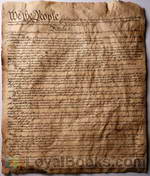 The Constitution of the United States of America, 1787
The Constitution of the United States of America, 1787
The Declaration of Independence was signed on July 4, 1776. It announced that the thirteen American colonies, who were at war with Great Britain in the American Revolutionary War, no longer considered themselves part of the British Empire. They now called themselves a new nation, The United States of America. This famous document went on to become a well-known keystone of the human rights movement. However, the newly formed state had no real identity or philosophy and were merely a loose collection of states that had freed themselves from colonial rule... | |
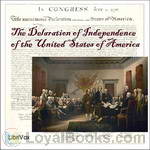 The Declaration of Independence of the United States of America
The Declaration of Independence of the United States of America
Declaration of Independence is the document in which the Thirteen Colonies declared themselves independent of the Kingdom of Great Britain and explained their justifications for doing so. It was ratified by the Continental Congress on July 4, 1776. | |
By: Frances Calderón de la Barca (1804-1882) | |
|---|---|
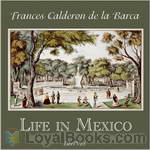 Life in Mexico
Life in Mexico
FRANCES CALDERON DE LA BARCA, born in Edinburgh, 1804, the daughter of William Inglis. After her father’s death she settled in America, where she married the Spanish diplomat, Don Angel Calderon de la Barca. She accompanied him on his various appointments to Mexico, Washington, and finally to Madrid, where she was created Marquesa de Calderon de la Barca by Alfonso XII and died in 1882. The present work is the result of observations made during a two years’ residence in Mexico, by a lady, whose position there made her intimately acquainted with its society, and opened to her the best sources of information in regard to whatever could interest an enlightened foreigner... | |
By: Frances Little (1863-1941) | |
|---|---|
 The Lady of the Decoration
The Lady of the Decoration
| |
 Little Sister Snow (version 2)
Little Sister Snow (version 2)
American author Fannie Caldwell, under pen name of Frances Little, tells the story of young Yuki San growing up in Japan circa early 1900s, and of her dreams of an American. (Introduction by Cheri Gardner) | |
 The Lady and Sada San A Sequel to the Lady of the Decoration
The Lady and Sada San A Sequel to the Lady of the Decoration
| |
By: Frances M. A. Roe | |
|---|---|
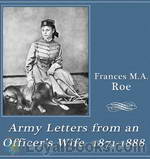 Army Letters from an Officer's Wife, 1871-1888
Army Letters from an Officer's Wife, 1871-1888
"There appeared from the bushes in front of me, and right in the path, two immense gray wolves . . . Rollo saw them and stopped instantly, giving deep sighs, preparing to snort, I knew . . . To give myself courage, I talked to the horse, slowly turning him around . . . when out of the bushes in front of us, there came a third wolf! The situation was not pleasant and without stopping to think, I said ‘Rollo, we must run him down - now do your best’ and taking a firm hold of the bridle, and bracing myself in the saddle, I struck the horse with my whip and gave an awful scream... | |
By: Frances Trollope (1779-1863) | |
|---|---|
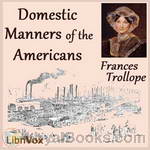 Domestic Manners of the Americans
Domestic Manners of the Americans
Next to de Alexis de Tocquville's almost contemporary Democracy in America, Frances Trollope's work may be the most famous (or at least notorious) dissection of manners and morals of the United States. The work was a sensation on both sides of the Atlantic, and particularly in America, where Trollope was reviled as representing the worst of old world prejudices the new republic (though the criticism did nothing to hurt sales).Accompanied by a son and two daughters, Trollope lived in the United States... | |
By: Frances Wilson Huard (1885-) | |
|---|---|
 With Those Who Wait
With Those Who Wait
| |
By: Francesco Saverio Nitti (1868-1953) | |
|---|---|
 Peaceless Europe
Peaceless Europe
| |
By: Francis Amasa Walker (1840-1897) | |
|---|---|
 The Indian Question
The Indian Question
| |
By: Francis Andrew March (1863-1926) | |
|---|---|
 History of the World War
History of the World War
This is a popular narrative history of the world's greatest war. Written frankly from the viewpoint of the United States and the Allies, it visualizes the bloodiest and most destructive conflict of all the ages from its remote causes to its glorious conclusion and beneficent results.Two ideals have been before us in the preparation of this necessary work. These are simplicity and thoroughness. It is of no avail to describe the greatest of human events if the description is so confused that the reader loses interest... | |
By: Francis Asbury Smith (1837-1915) | |
|---|---|
 The Critics Versus Shakspere A Brief for the Defendant
The Critics Versus Shakspere A Brief for the Defendant
| |
By: Francis Augustus MacNutt (1863-1927) | |
|---|---|
 Bartholomew de Las Casas; his life, apostolate, and writings
Bartholomew de Las Casas; his life, apostolate, and writings
| |
By: Francis Bowen (1811-1890) | |
|---|---|
 A Theory of Creation: A Review of 'Vestiges of the Natural History of Creation'
A Theory of Creation: A Review of 'Vestiges of the Natural History of Creation'
| |
By: Francis Buckley (1881-1949) | |
|---|---|
 Q.6.a and Other places Recollections of 1916, 1917 and 1918
Q.6.a and Other places Recollections of 1916, 1917 and 1918
| |
By: Francis Edward Younghusband (1863-1942) | |
|---|---|
 The Heart of Nature or, The Quest for Natural Beauty
The Heart of Nature or, The Quest for Natural Beauty
| |
By: Francis Hamilton (1762-1829) | |
|---|---|
 An Account of The Kingdom of Nepal And of the Territories Annexed to this Dominion by the House of Gorkha
An Account of The Kingdom of Nepal And of the Territories Annexed to this Dominion by the House of Gorkha
| |
By: Francis Haverfield (1860-1919) | |
|---|---|
 Roman Britain in 1914
Roman Britain in 1914
| |
 The Romanization of Roman Britain
The Romanization of Roman Britain
| |
By: Francis Hervé | |
|---|---|
 How to Enjoy Paris in 1842 Intended to Serve as a Companion and Monitor, Containing Historical, Political, Commercial, Artistical, Theatrical And Statistical Information
How to Enjoy Paris in 1842 Intended to Serve as a Companion and Monitor, Containing Historical, Political, Commercial, Artistical, Theatrical And Statistical Information
| |
By: Francis J. (Francis James) Lippitt (1812-1902) | |
|---|---|
 A Treatise on the Tactical Use of the Three Arms: Infantry, Artillery, and Cavalry
A Treatise on the Tactical Use of the Three Arms: Infantry, Artillery, and Cavalry
| |
By: Francis L. (Francis Lister) Hawks (1798-1866) | |
|---|---|
 The Adventures of Daniel Boone: the Kentucky rifleman
The Adventures of Daniel Boone: the Kentucky rifleman
| |
By: Francis M. Walters | |
|---|---|
 Physiology and Hygiene
Physiology and Hygiene
Physiology and Hygiene for Secondary Schoolsby Francis M. Walters, A.M.PREFACE The aim in the preparation of this treatise on the human body has been, first, to set forth in a teachable manner the actual science of physiology; and second, to present the facts of hygiene largely as applied physiology. The view is held that right living consists in the harmonious adjustment of one's habits to the nature and plan of the body, and that the best preparation for such living is a correct understanding of the physical self... | |
By: Francis Parkman | |
|---|---|
 Pioneers of France in the New World
Pioneers of France in the New World
Francis Parkman (1823-1893) has been hailed as one of America’s first great historians and as a master of narrative history. Numerous translations have spread the books around the world. The American writer and literary critic Edmund Wilson (1895-1972) in his book O Canada (1965), described Parkman’s France and England in North America in these terms: The clarity, the momentum and the color of the first volumes of Parkman’s narrative are among the most brilliant achievements of the writing of history as an art... | |
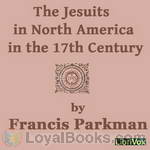 The Jesuits in North America in the 17th Century
The Jesuits in North America in the 17th Century
Parkman has been hailed as one of America's first great historians and as a master of narrative history. Numerous translations have spread the books around the world. The American writer and literary critic Edmund Wilson (1895-1972) in his book "O Canada" (1965), described Parkman’s France and England in North America in these terms: "The clarity, the momentum and the color of the first volumes of Parkman’s narrative are among the most brilliant achievements of the writing of history as an art... | |
 France and England in North America; a Series of Historical Narratives — Part 3
France and England in North America; a Series of Historical Narratives — Part 3
| |
 A Half Century of Conflict - Volume I France and England in North America
A Half Century of Conflict - Volume I France and England in North America
| |
By: Francis Parkman, Jr. | |
|---|---|
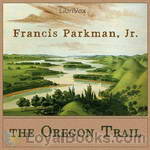 The Oregon Trail
The Oregon Trail
The book is a breezy, first-person account of a 2 month summer tour of the U.S. states of Nebraska, Wyoming, Colorado, and Kansas when Parkman was 23. Proofed and produced by Karen Merline. | |
 Montcalm and Wolfe
Montcalm and Wolfe
Francis Parkman (1823-1893) has been hailed as one of America's great nineteenth century historians, along with William Prescott, John Lothrop Motley, George Bancroft, and Henry Adams. He is a master of narrative history and is most known for his "The Oregon Trail" and his seven volume work on the history of the French and English in North America. "Montcalm and Wolfe", the seventh and last volume of the series, covers the conflict between England and France for supremacy in the New World from 1745 to 1884... | |
 Conspiracy of Pontiac and the Indian War after the Conquest of Canada
Conspiracy of Pontiac and the Indian War after the Conquest of Canada
"The Conspiracy of Pontiac" was Parkman's first history book and first published in 1851. It covers the Indian wars of 1763 to 1769. Pontiac, an Ottawa chief, put together a coalition of Indian tribes from around the Great Lakes region and the Illinois and Ohio Countries to attack the British under General Jeffrey Amherst. - Summary by Richard Carpenter | |
 La Salle, Discovery of The Great West
La Salle, Discovery of The Great West
Parkman has been hailed as one of America's first great historians and as a master of narrative history. Numerous translations have spread the books around the world. The American writer and literary critic Edmund Wilson in his book O Canada , described Parkman’s France and England in North America in these terms: The clarity, the momentum and the color of the first volumes of Parkman’s narrative are among the most brilliant achievements of the writing of history as an art. Parkman's biases, particularly his attitudes about nationality, race, and especially Native Americans, has generated criticism... | |
By: Francis Rolt-Wheeler | |
|---|---|
 The Boy With the U.S. Census
The Boy With the U.S. Census
THE BOY WITH THE U.S. CENSUSBY FRANCIS ROLT-WHEELERPREFACELife in America to-day is adventurous and thrilling to the core. Border warfare of the most primitive type still is waged in mountain fastnesses, the darkest pages in the annals of crime now are being written, piracy has but changed its scene of operations from the sea to the land, smugglers ply a busy trade, and from their factory prisons a hundred thousand children cry aloud for rescue. The flame of Crusade sweeps over the land and the call for volunteers is abroad... | |
By: Francis S. (Francis Samuel) Drake (1828-1885) | |
|---|---|
 Tea Leaves Being a Collection of Letters and Documents relating to the shipment of Tea
Tea Leaves Being a Collection of Letters and Documents relating to the shipment of Tea
| |
By: Francis Sydney Marvin (1863-1943) | |
|---|---|
 Progress and History
Progress and History
| |
By: Francis Turner Palgrave (1824-1897) | |
|---|---|
 The Visions of England Lyrics on leading men and events in English History
The Visions of England Lyrics on leading men and events in English History
| |
By: Francisco Hernández Arana Xajilá (1502?-1581) | |
|---|---|
 The Annals of the Cakchiquels
The Annals of the Cakchiquels
| |
By: François Hotman (1524-1590) | |
|---|---|
 Franco-Gallia Or, An Account of the Ancient Free State of France, and Most Other Parts of Europe, Before the Loss of Their Liberties
Franco-Gallia Or, An Account of the Ancient Free State of France, and Most Other Parts of Europe, Before the Loss of Their Liberties
| |
By: François Pierre Guillaume Guizot (1787-1874) | |
|---|---|
 Popular History of England, From the Earliest Times to the Reign of Queen Victoria, Vol 1
Popular History of England, From the Earliest Times to the Reign of Queen Victoria, Vol 1
This is volume one in this series of books and deals with history from Caractacus and his Wife before Claudius to the death of Wat Tyler. This follows the history of that time. Volumes two and three will be done once this one is complete. | |
By: Françoise-Athénaïs de Rochechouart de Mortemart Montespan (1641-1707) | |
|---|---|
 Memoirs of Madame de Montespan
Memoirs of Madame de Montespan
| |
By: Frank B. Lord | |
|---|---|
 Woodrow Wilson's Administration and Achievements
Woodrow Wilson's Administration and Achievements
| |
By: Frank Berkeley Smith (1869-1931) | |
|---|---|
 Real Latin Quarter
Real Latin Quarter
"Cocher, drive to the rue Falguière"--this in my best restaurant French. The man with the varnished hat shrugged his shoulders, and raised his eyebrows in doubt. He evidently had never heard of the rue Falguière. "Yes, rue Falguière, the old rue des Fourneaux," I continued. Cabby's face broke out into a smile. "Ah, oui, oui, le Quartier Latin." And it was at the end of this crooked street, through a lane that led into a half court flanked by a row of studio buildings, and up one pair of dingy waxed steps, that I found a door bearing the name of the author of the following pages--his visiting card impaled on a tack... | |
By: Frank Bigelow Tarbell (1853-1920) | |
|---|---|
 A History of Greek Art
A History of Greek Art
| |
By: Frank Bird Linderman (1869-1938) | |
|---|---|
 Indian Why Stories Sparks from War Eagle's Lodge-Fire
Indian Why Stories Sparks from War Eagle's Lodge-Fire
| |
By: Frank Dilnot (1875-) | |
|---|---|
 Lloyd George The Man and His Story
Lloyd George The Man and His Story
| |
By: Frank Fowler | |
|---|---|
 The Broncho Rider Boys with Funston at Vera Cruz Or, Upholding the Honor of the Stars and Stripes
The Broncho Rider Boys with Funston at Vera Cruz Or, Upholding the Honor of the Stars and Stripes
| |
By: Frank Fox (1874-1960) | |
|---|---|
 Bulgaria
Bulgaria
| |
 Peeps At Many Lands: Australia
Peeps At Many Lands: Australia
| |
By: Frank H. (Frank Herbert) Simonds (1878-1936) | |
|---|---|
 They Shall Not Pass
They Shall Not Pass
| |
By: Frank Henderson | |
|---|---|
 Six Years in the Prisons of England
Six Years in the Prisons of England
A Merchant talks about daily life inside prisons of England, describes routines and how prisoners are treated. He notes stories of how fellow prisoners came to be in prison, and his ideas about the penal system, its downfalls and ways to improve it. The reader can see similarities to the problems we still have in regarding "criminals" today. (Introduction by Elaine Webb) | |
By: Frank Jardine (1841-1919) | |
|---|---|
 Narrative of the Overland Expedition of the Messrs. Jardine from Rockhampton to Cape York, Northern Queensland
Narrative of the Overland Expedition of the Messrs. Jardine from Rockhampton to Cape York, Northern Queensland
| |
By: Frank Lewis Dyer and Thomas Commerford Martin | |
|---|---|
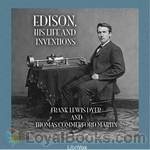 Edison, His Life and Inventions
Edison, His Life and Inventions
One of the most prolific and multi-talented geniuses the world has ever seen, Thomas Alva Edison's life is indeed an inspiration for each new generation. Today we live in a world that would not have been possible if not for several of his important inventions – the electric light bulb, the motion picture camera, electric power distribution, the phonograph, and a host of other things that we take for granted today. In fact, he still holds the world record for the maximum number of patents, numbering 1093 in all! Edison – His Life and Inventions by Frank Lewis Dyer and Thomas Commerford Martin, published in 1910 was in fact a biography commissioned by Edison himself... | |
By: Frank Marryat (1826-1855) | |
|---|---|
 Borneo and the Indian Archipelago with drawings of costume and scenery
Borneo and the Indian Archipelago with drawings of costume and scenery
| |